
Conception PLUS: Maidens of the Twelve Stars Review
When Conception originally released in Japan on the PlayStation Portable in 2012, it was seemingly past the system’s prime to see a western release. Despite that, we did get the sequel in Conception II: Children of the Seven Stars two years later, with most people I’ve spoken to generally considering it to be an average dungeon crawler that happens to be too passionate about making sex jokes. Now in 2019, the original game we missed out on has been remastered for PlayStation 4 and Steam as Conception Plus: Maidens of the Twelve Stars.
I’m not sure exactly what I expected from this game.
I’ll be upfront with the fact that I’m not a fan of extensive amounts of sexualization in games, but I still went into this with an open mind since I’m a big fan of dungeon crawlers. There’s nothing wrong with RPGs that focus on sex to sell while indulging in that premise, but the amount I’ve played that've managed to stand out despite that is unfortunately very small. Conception is unapologetically a game for a very specific type of person -- if you enjoy dating sims, Isekai stories, and never tire of constant use of innuendos then you’ll probably find a lot to enjoy from this game. If not, then I think you might want to look elsewhere.
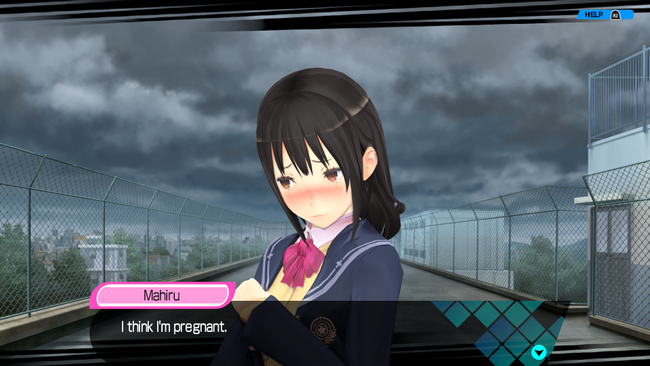
You begin Conception as Itsuki (or whatever you want to name him) whose cousin/childhood friend, Mahiru, tells him that she’s pregnant. Within literal seconds of finding this out both of them are whisked away into a fantasy world called Granvania, where they are given the title of God’s Gifts. Turns out Mahiru isn’t actually pregnant, but is one of twelve Star Maidens that can “Classmate” with Ituski to make Star Children. Itsuki needs to take these children into randomly generated dungeons to cleanse the world of Impurities and find a way home. Oh yeah, and there’s a school setting as well.
Suffice it to say, the story isn’t really anything special. Itsuki isn’t terribly interesting as a protagonist, and since his dialogue isn’t voiced outside of the occasional grunt or calling a girl’s name it’s hard to get attached to him. That doesn’t really matter however, since the game cares more about being a dating sim than telling a meaningful story. It being focused on this aspect isn’t inherently a bad thing, but I bring this up to warn you to not go into this expecting an engaging story. After about an hour of dragging its feet while establishing the setting, the plot almost immediately takes a back seat to give way to dungeoneering and dating.
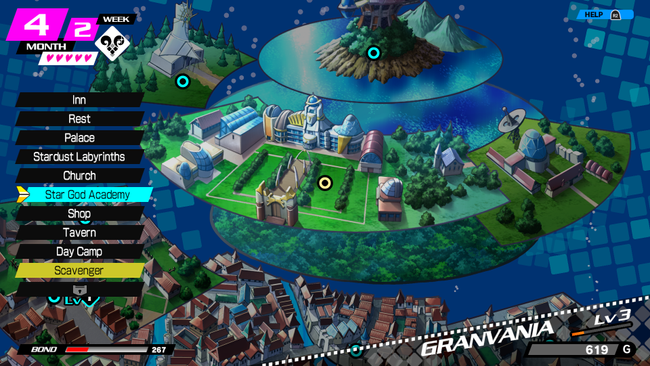
The game is familiarly broken up into a series of weeks, which usually all play out in the same fashion. You have limited bond points which can be spent viewing scenes that strengthen the relationship between Itsuki and the heroines, with your choices during these events affecting how the women think about you. Then you go to the town’s church to choose which women you want to make Star Children with. Each girl has proficiency with certain types of stats, and can make different classes of Children depending on who you Classmate with. The game goes out of its way to mention that these scenes are totally not meant to convey real sex, but they’re obviously supposed to heavily allude to it. The higher your relationship with the girls, the stronger Star Children you create. Once you make up to four teams of Star Children and manage their equipment, you then go into the random dungeons to make however much progress you want before you return and start the next week.
I have to admit, I found some enjoyment out of how simple and straightforward Conception’s calendar system plays out. It understands what people care about these kinds of games, and has the writers focus on making the romantic leads enjoyable to talk to. I don’t think any of the girls were too memorable, but I can’t deny that it was fun having these mostly carefree conversations. One notable feature of the game is the ability to save the game during any dialogue choice. The purpose of this mechanic is to let the players instantly reload the game back to a previous choice when they happen to say something any of the girls don't agree with. By doing this they can always say the right things, optimizing these events to avoid accidentally tanking one of the relationships. In terms of a video game, this is an incredibly useful feature, but I can’t help but feel that it shatters immersion. Reloading frequently is optional, but there’s no reason not to abuse the feature since it's a waste of time otherwise.
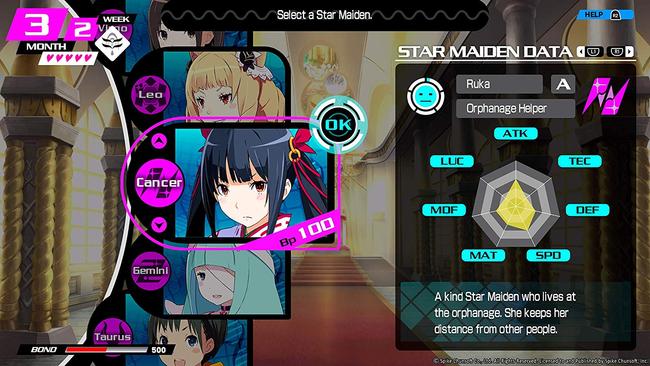
Players might find themselves focusing on a select five girls to get their relationships up and maximize their potential units, but it’s always a good idea to talk to as many of the girls as possible to add some variety to your party. Without a varied party, you’re likely to grow tired of the combat system.
The dungeons themselves consist of randomly generated corridors connecting big square rooms, full of items to collect and enemies you can engage in battles with. Itsuki’s Star Children follow him on the field, and while realistically Itsuki would be breaking numerous child endangerment laws, I can’t help but find it silly and charming in this goofy little world. I was rather disappointed however to find that even though enemies appear on the field instead of being random encounters, there is no way to interact with them outside running into them. The jump from a portable system to a home console was the perfect opportunity to add in a system that rewards players for being on the offensive on the field with some kind of attack, but no such thing exists. It allows you to avoid encounters if you wish, but that’s about it.
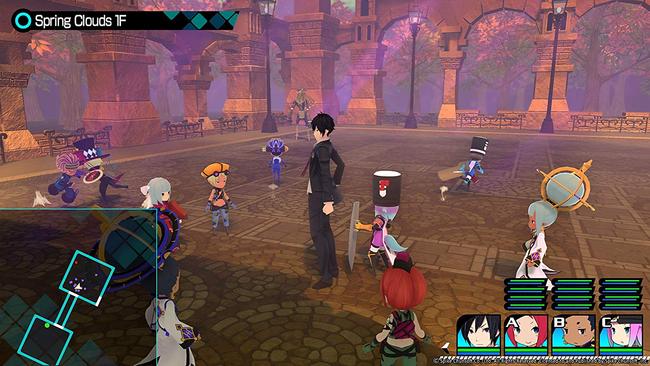
Combat itself feels enjoyable to grind away at and was surprisingly challenging from the beginning as you adjust to the strange pseudo grid system. Enemies all stand in the center of each part of the “grid”, with spots existing at each of the four sides of that grid for your groups of Star Children and Itsuki to jump around between. Itsuki can stand in the same spot as any group of Children, but multiple groups of children cannot pile onto the same spot. This adds more importance to your position and the strategy needed to dodge when enemies charge up powerful attacks. In the same way, what side you attack the enemies on and what attacks your use change how effective they are. It’s a surprisingly unique combat system that will play out differently depending on how you organize your parties. In addition to this, your groups of Children can combine together into giant mechs that can cause much more damage and are often best saved for bosses.
The whole thing clearly doesn't really take itself seriously, but I'm surprised the game's battle mechanics had as much depth as they do. I feel more work was needed to make combat flow better though, because even with turbo mode turned on I still think battles tend to drag. The game was most enjoyable when I wanted to grind away in 30 minutes segments at a time with a podcast or YouTube video on, and this makes sense given its PSP roots. It's designed around being played in little bursts, with progress meant to be made in sets of a couple floors before you'll naturally need to call it a week and return to town. The dungeon crawling isn't necessarily bad, but it wasn't fleshed out enough to make it as addicting as it could have been.
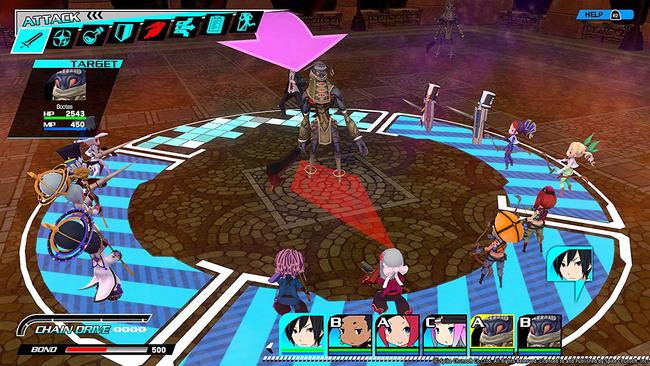
I think the games excels the most with how it implements the progression of your Star Children into the main gameplay loop. Once your Children reach a certain level you can send them away from your party to make them Independent, which ties in to the development of the town. More shops and facilities will unlock as the town's level gets higher, so it encourages players to continue to make more Star Children. Since you'll need to do this frequently, it will also mean you're likely to have a different party formation every few weeks. While that is one of the strangest paragraphs I've ever written, trust me when I say that it's surprisingly satisfying for what it is. At least, from a gameplay perspective.
The visuals in the dungeon can be a mixed bag, with hallways and enemy designs repeated excessively, and unfortunately the same can be said for the whole game. The presentation jumps frequently between 2D portraits and 3D models for the girls during the cutscenes. The 2D art all looks very well designed but is slightly worsened by being animated with tweening that looks really distracting. The 3D models for the girls mostly look solid, with the exception of extreme jiggle physics and Itsuki’s model in dungeons. I got used to it, but I can’t help but find these gave Conception a very cheap feeling. What doesn’t feel cheap however is the voice acting and localization in general. There’s dual audio, and regardless of which you pick you’re in for a voice cast that all do a pretty good job. I played the game with the dub, and I think most of my enjoyment from the game came from how much I could tell the localization staff put their all into the English script. It flows very well, and that passion was strangely infectious into the other aspects of the game. I wish I could say the music was as memorable as the localization, but outside an incredibly catchy opening theme I struggle to remember any of it.
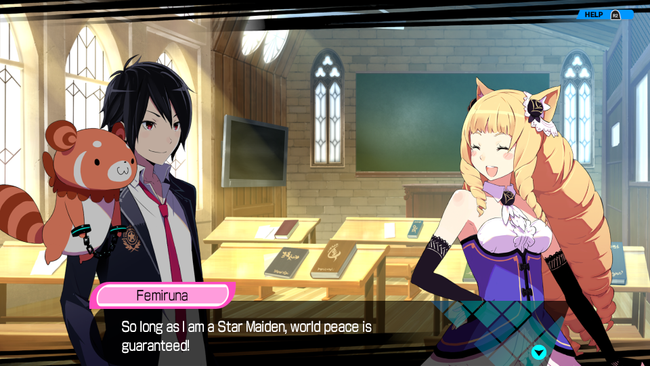
As a whole, I’m confused with what Conception was going for. It’s not necessarily a bad game, but I’m hard-pressed to find anything it does exceptionally well outside of the localization. It was an enjoyable time once I turned my brain off, but the gameplay doesn't remain engaging and the constant use of sexual innuendo is goofy at best and exhausting otherwise. It’s a solid remaster of a PSP game, but it never felt like anything more than a cleaned-up PSP game -- maybe that description alone is enough.